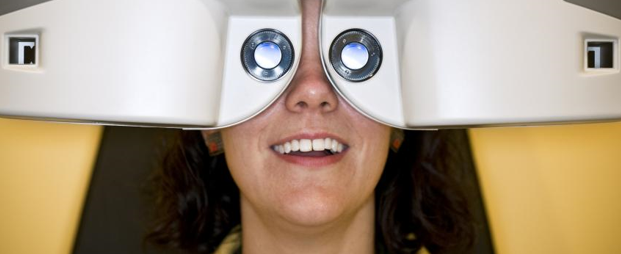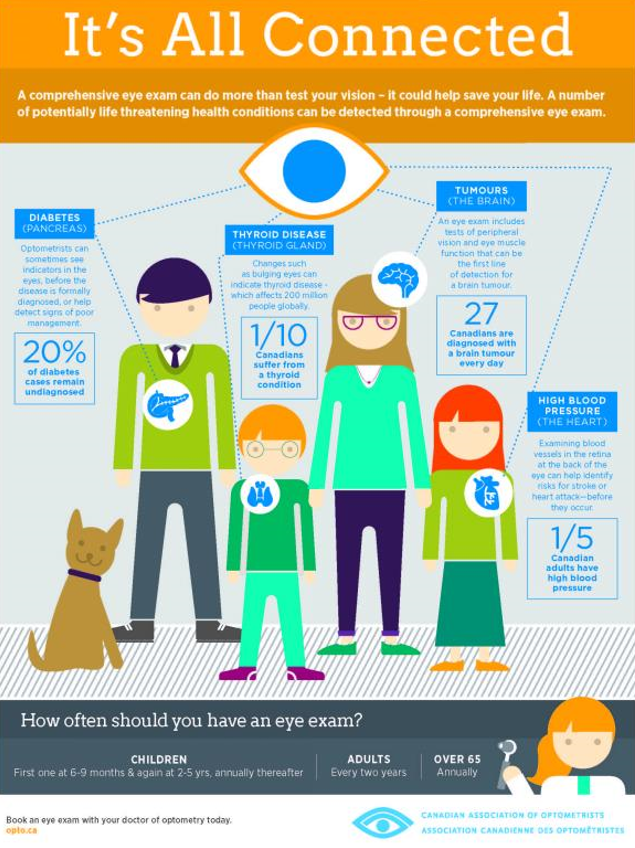EYE HEALTH & SAFETY
Comprehensive Eye Exams: Vital for More than Just Your Vision

At first glance, many think a comprehensive eye exam is just a vision test, but, getting your eyes checked can have benefits that go well beyond the optometry chair.
Because of the eye’s small nerves and blood vessels, delicate structures, and close proximity to your brain, a comprehensive eye exam is one of the least invasive steps you can take to protect your overall health. Not only can your optometrist assess your eye health, they can identify symptoms of conditions elsewhere in the body like brain tumors, aneurysms, high blood pressure and diabetes. Make an appointment with your local doctor of optometry today .
Brain Injuries and Neurological Conditions
The optic nerve in the eye is essentially an extension of the brain. Any neurological condition that affects nerve cells including Parkinson’s disease and multiple sclerosis can be detected with an eye exam.
The muscles responsible for eye movement are supplied with nerve cells that are controlled by certain parts of the brain. Mental health conditions and brain injuries, including strokes, may affect the parts of the brain that control eye coordination and tracking. A comprehensive eye exam can detect problems with eye movement, and vision training can improve the ability of the eyes to track and work together.
High Blood Pressure
A doctor of optometry may be the first healthcare professional to detect high blood pressure through a comprehensive eye exam. The fine blood vessels in the retina at the back of the eye can help identify risks of a stroke or heart attack before they occur. Eye health can often signal the presence and state of serious medical conditions, such as hypertension, which is a leading cause of a heart attack, stroke, and chronic heart failure. What’s more, the information obtained through an eye exam can help healthcare providers treat patients preventively to decrease the risks of cardiovascular disease.
Diabetes
As many as one million Canadians are living with undiagnosed diabetes. [1] Optometrists sometimes see indicators of diabetes in the eyes before the disease is formally diagnosed because diabetes can damage the small blood vessels in your retina (the light-sensitive tissue at the back of your eye). [2]
Catching diabetes early by comprehensive eye exam can also reduce the risk of diabetes-related vision loss and other life-threatening complications like heart disease and kidney failure.
Cancer
A comprehensive eye exam includes tests of peripheral vision and eye muscle function that can often be the first line of detection of a brain tumor.
Brain tumors, depending on their location in the brain, can cause loss of peripheral vision or can damage the nerves that supply the muscles of the eyes resulting in abnormal eye movements, double vision, or other changes in vision. A comprehensive eye exam can also identify unusual structures and growths within the eye.
The eye and its surrounding tissues are one of the most common areas of the body where skin cancer is first diagnosed. [2] Skin cancer can be detected through an eye exam, as lesions called basal cell carcinomas can show up on the eyelid.


